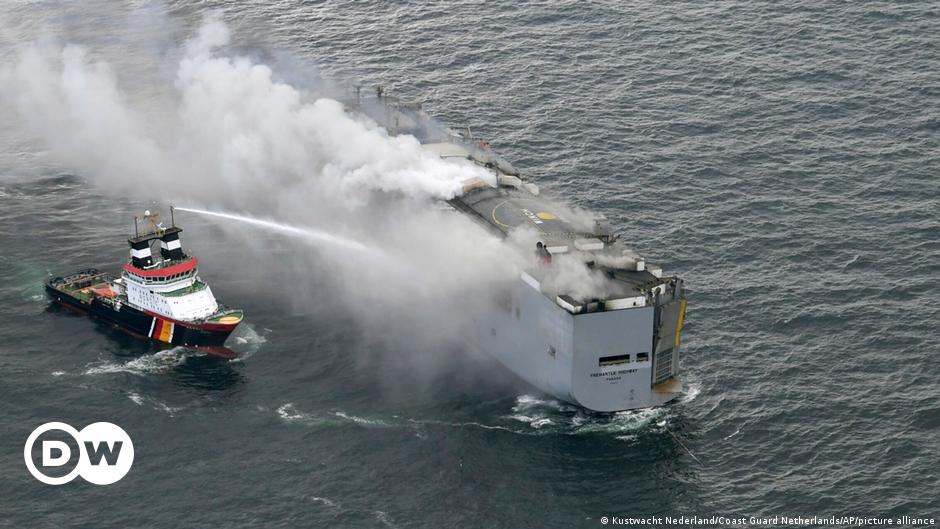A freight ship that caught fire off the Dutch coast and has been burning since, as fire extinguishers try to figure out ways to tackle the incident, has been carrying nearly 500 electric cars, far more than previously reported, the company that chartered the ship said.
Initial reports said that the ship was carrying 25 electric cars.
The Fremantle Highway vessel, which has burning for a fourth day off the Dutch coast, was chartered by Japanese transportation company K Line.
A spokesperson for the company said there were 3,783 vehicles on board, including 498 battery-electric vehicles. The spokesperson declined to comment on the kinds of car brands that were on the ship.
There is no information on whether the cargo ship was carrying cars by Japanese manufacturers.
Electric car battery fires much harder to put out
The Dutch coast guard said Thursday the cause of the fire was unknown, while Dutch media reported that the fire may have been after an electric car battery ignited.
Cars with lithium ion batteries have fewer fires than diesel and gasoline cars, but the situation can be dangerous when the batteries catch fire.
The fires then are hotter because there’s a lot more fuel inside an electric car battery because the battery cells are densely packed. It also takes a lot more water to put the fire out.
But pouring too much water to douse the flames is also not a tenable solution because there are fears of the ship sinking and environmental havoc.
The 199-meter Fremantle is still drifting in the sea, about 17 kilometers from the Dutch island of Terschelling.





That’s pure lithium in those videos. Lithium-ion batteries have a very small percentage of lithium in them. If batteries reacted like that they’d be a nuclear bomb when firefighters dowse them with tons of water to minimize the heat - the water doesn’t put out the fire nor cause more burning, it serves to allow the reaction to complete without burning everything else. This is actually a common technique for many chemical fires, the water is just removing part of the heat in vaporization.
Long term water exposure is bad for them though, but not directly because it starts a fire. Salt water can short the battery out and increase a fire risk though, so that’s true enough.
Both li-ion and lithium polymer batteries still have many kilograms of lithium. A lithium-ion battery pack for a single electric car contains about 8 kilograms (kg) of lithium, according to figures from US Department of Energy science and engineering research centre Argonne National Laboratory. It may be a small percentage of the total battery pack and coolant weight, but it’s still a lot of extremely explosive metal.
It’s (mostly) not metallic lithium though, the clue is in the “ion” part of li-ion. I assume you refuse to put salt on your food for fear that the sodium in it will catch fire?